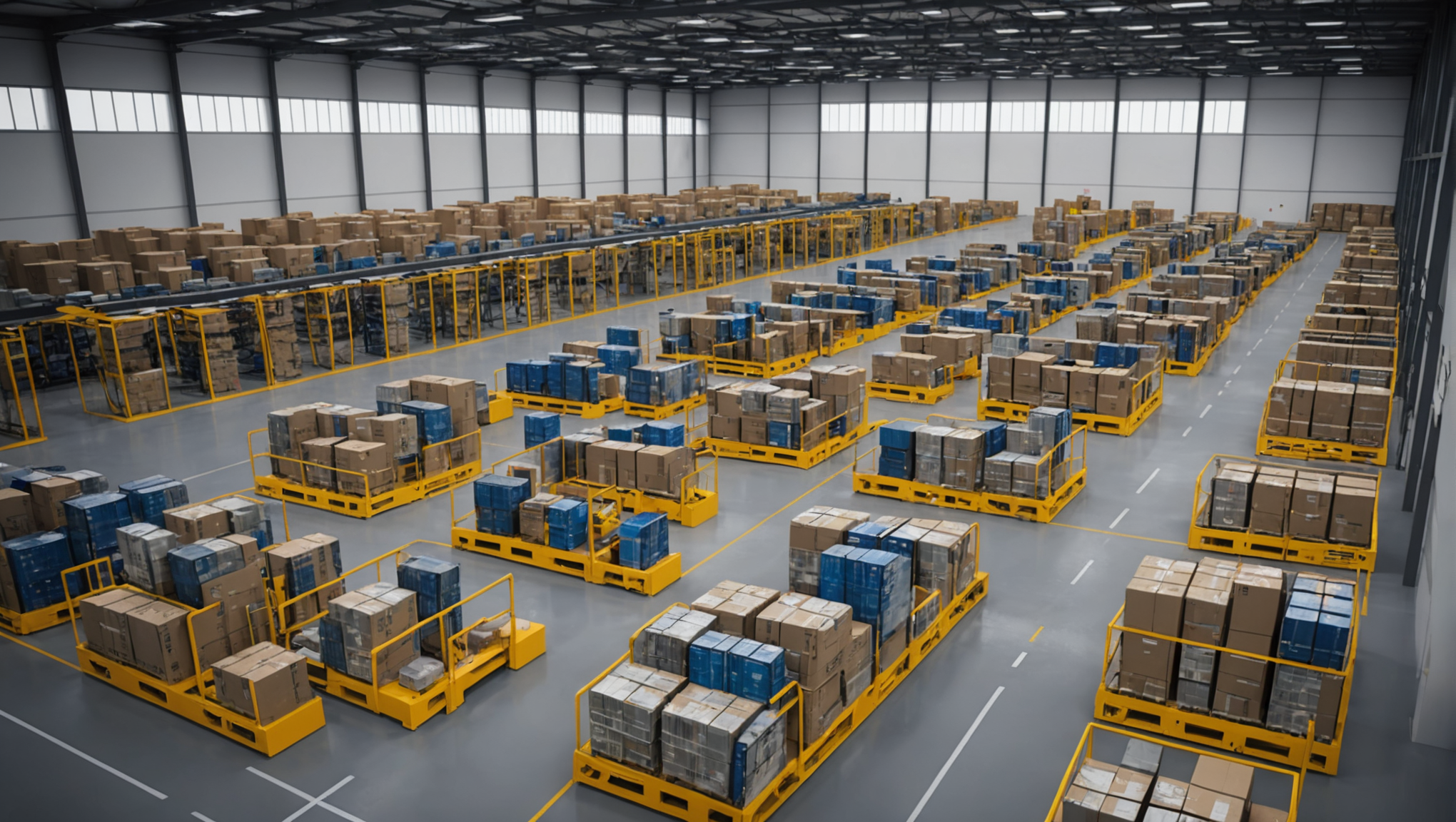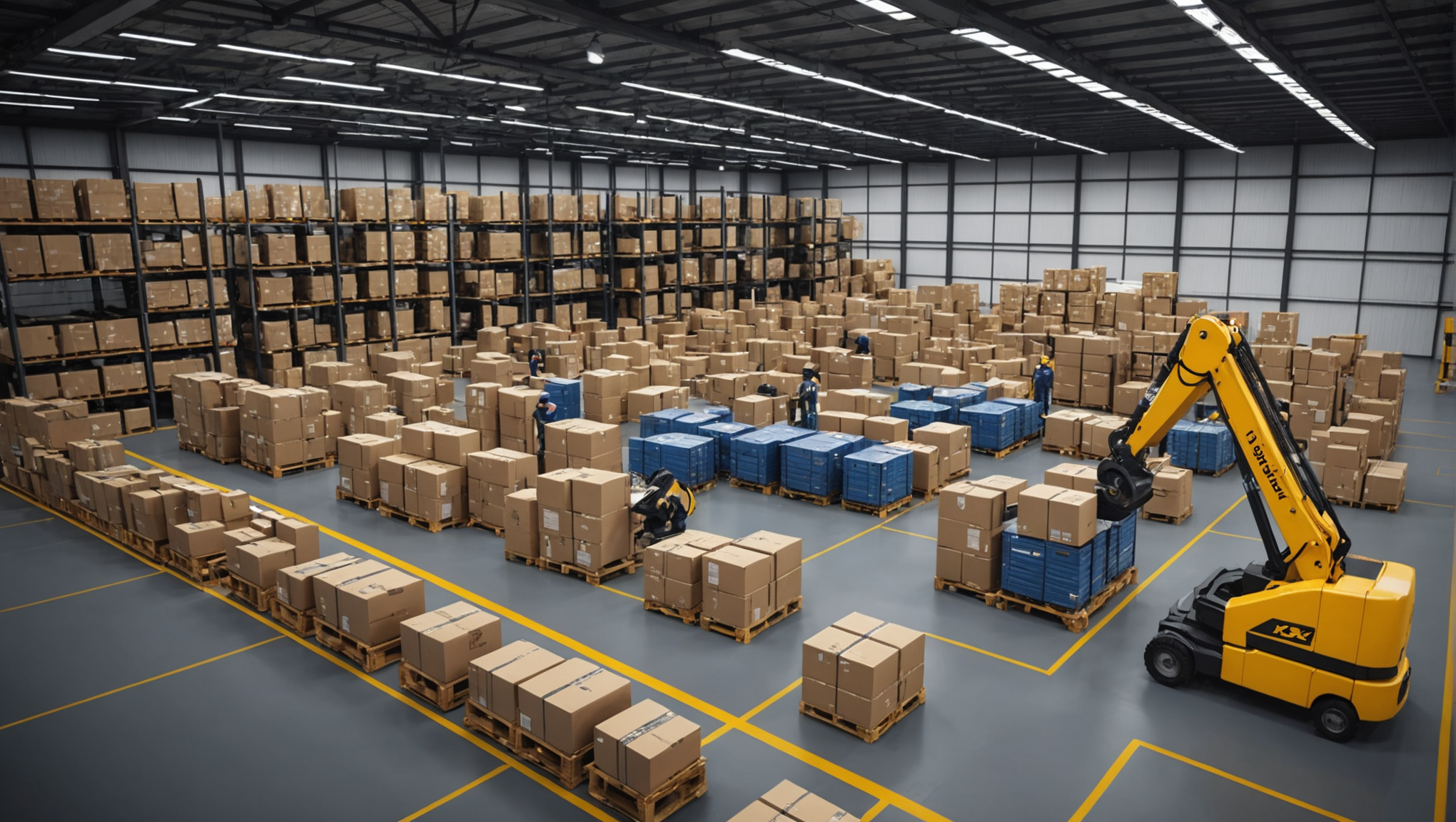In the era of digitalization, the transformation of supply chains has become a necessity for businesses. Supply Chain 4.0 represents a new era where automation and artificial intelligence combine to optimize operational efficiency. This is not limited to mere digitization of processes but encompasses a true reinvention of logistics management methods. By integrating advanced technologies such as the Internet of Things (IoT), big data, and blockchain, organizations can enhance the flow of information and products.
Supply Chain Managers now have tools that enable them to make informed decisions in real-time, thus reducing errors and processing times. This efficiency also translates into better inventory management and a reduction in operational costs. As a result, the implementation of a Supply Chain 4.0 not only improves internal performance but also offers a competitive advantage in the market. The optimization of supply chains is shaping a future where every link in the chain operates smoothly and interconnectedly, responding to the challenges of new consumer demands.

Table des matières
ToggleHow does Supply Chain 4.0 boost efficiency?
Supply Chain 4.0 represents the modern evolution of supply chains through the incorporation of advanced technologies. By integrating solutions such as automation, artificial intelligence, and the Internet of Things, this new approach not only optimizes logistics processes but also revolutionizes how businesses manage their operations. Several studies show that organizations that embrace this digital transformation elevate their efficiency to promising levels, with measurable results.
Key statistics of Supply Chain 4.0
To understand the impact of Supply Chain 4.0, it is essential to look at the numbers. According to a recent study, 79% of companies see an increase in their operational efficiency after adopting 4.0 technologies. Indeed, these companies report savings of up to 30% on logistics costs due to the optimization of data and product flows.
A McKinsey study reveals that supply chains that fully leverage artificial intelligence can improve their demand forecasting by 50%, thereby reducing overstock and stockouts. This impacts not only inventory management but also logistics, where 70% of companies report better visibility of workflows thanks to the integration of IoT technologies.
Organizations that have already implemented these changes report productivity increases of their teams by up to 25% per year. These statistics underscore the importance of a well-embedded digital transformation in Supply Chain.
Case studies and practical implementation
To illustrate this data, let’s take the example of Lenovo, which successfully boosted the efficiency of its supply chain by integrating the Sterling Supply Chain Insights solution. This system, which leverages Watson’s artificial intelligence, allows Lenovo to visualize product flows in real-time, reducing delivery times by 20%.

Another notable case is that of the automotive giant BMW, which has shifted its expertise in Supply Chain 4.0 towards more agile production methods. Through the use of 4.0 technologies, BMW has reduced its non-compliance costs by 30% by improving product quality while minimizing waste. Their secret lies in data analysis at every stage of the manufacturing process to anticipate issues before they arise.
For companies eager to optimize their own supply chain, the implementation of these technologies involves several practical steps. First, an audit of existing processes is essential to identify areas for improvement. Next, it is crucial to train staff on new technologies and encourage a culture of innovation. Finally, establishing close collaboration with technology partners can enable the adoption of best practices and tailored solutions.
Innovative perspectives and adoption strategies
Now let’s look to the future. To remain competitive, companies must adopt an innovation-driven vision. One emerging trend is the increasing use of blockchain in Supply Chain 4.0. This technology ensures complete transparency of transactions and information flows, thus strengthening trust among business partners.
Moreover, the rise of cobots (collaborative robots) is another vector for improvement. Unlike traditional industrial robots, cobots work side by side with humans, thereby increasing efficiency without replacing the existing workforce. This approach allows for improved productivity while retaining human expertise in the decision-making process.
Companies must also move towards data-driven strategies, where decisions are made based on precise data analysis. This includes implementing artificial intelligence systems to anticipate trends, forecast demand, and optimize inventory levels in real-time.
Finally, the commitment to social and environmental responsibility can also improve efficiency. By implementing sustainable practices in the supply chain, such as optimizing transportation routes to reduce emissions, companies not only enhance their brand image but can also achieve significant savings.
Platforms like inoindustry provide resources and relevant information to delve deeper into these topics and develop a successful digital transition. Furthermore, support from supply chain experts is essential to adopt solutions tailored to the specific needs of each company.
En réflexion avec @GroupeSNCF @SNCF_Digital aux Technicentres pour travailler sur la supply chain 4.0 et l’amélioration de la visibilité interne sur les processus de maintenance des trains #UX pic.twitter.com/H6c2AHUy9g
— Tristan Desplechin (@TristanD__) May 7, 2019
FAQ on Supply Chain 4.0 and its efficiency
What is Supply Chain 4.0? Supply Chain 4.0 refers to the integration of advanced technologies such as automation, artificial intelligence, and the Internet of Things (IoT) to optimize logistics processes.
How does Supply Chain 4.0 improve efficiency? It enables fast and precise decision-making, reduces errors, and improves responsiveness through interconnected systems.
What tools are used in Supply Chain 4.0? Various tools, such as data analysis software, automation platforms, and supply chain management systems, are used to enhance processes.
What role does artificial intelligence play in this chain? AI analyzes massive data in real-time to anticipate needs, optimize stocks, and predict consumption trends, reinforcing efficiency.
Why is automation essential in Supply Chain 4.0? Automation reduces repetitive tasks, lowers operational costs, and allows for smooth information flow between departments within a company.
How is transparency strengthened? The use of technologies like blockchain helps track products throughout the supply chain, improving visibility and traceability of operations.
What are the benefits of optimized supply chain management? This leads to fewer delays, reduced transportation costs, better inventory management, and ultimately, increased customer satisfaction.
Is Supply Chain 4.0 suitable for all companies? Although its benefits are significant, implementation depends on the specific needs of each company and its ability to integrate new technologies.





